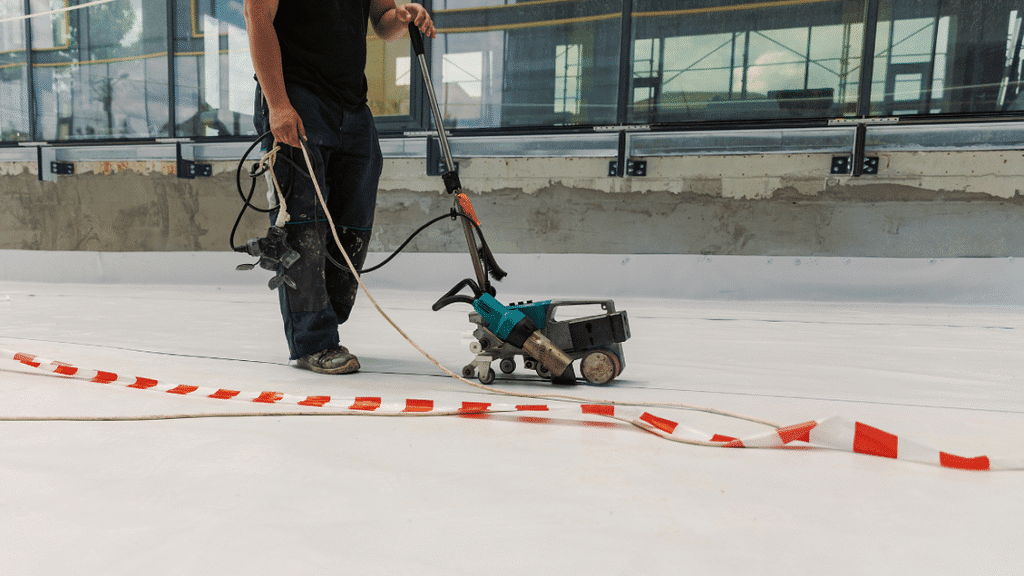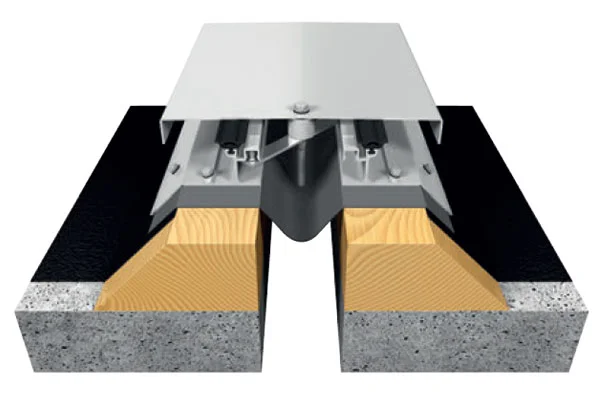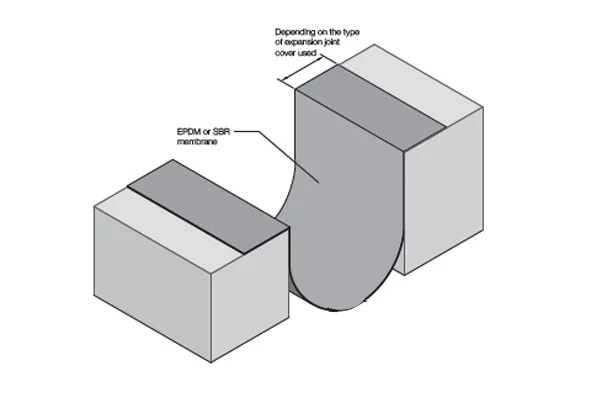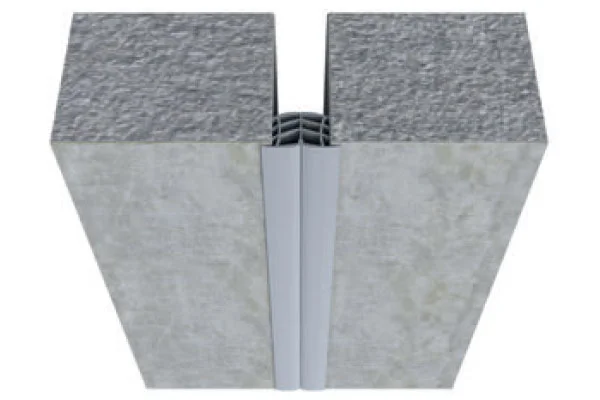
Roofs are literally the capstones to commercial architecture projects. Because roofing systems have enormous influence over a building’s long-term viability, there is always a need to balance design intent with the practicalities of weatherproofing, material compatibility, and installation timelines.
Additional considerations and constraints for modern roofing systems have grown in recent years to include a skilled labor shortage, sustainability, and the ongoing concern for safety.
Pressure-sensitive adhesive tapes are an example of a high-performance, design-aligned solution for many roofing challenges. Recent advances in adhesive technology, combined with growing acceptance in roofing solutions, have created more options, offering architects enhanced control over detailing, durability, and efficiency.
Pressure-Sensitive Adhesive (PSA) Tapes – A Primer
Pressure-sensitive adhesive tapes, known as PSAs, have long been used in flashing and seaming. They are widely used in conjunction with EPDM low-slope roofs to ensure seams and flashings are waterproof. For seams, PSAs are pre-applied at the factory on one side and have been shown to be extremely effective.
Thanks to the benefits of immediate bonding, no cure time, clean application, and multiple configurations, PSA tape applications in the commercial building envelope are growing.
I have personally seen the benefits of PSAs in commercial roofing systems as a former branch manager at commercial roofing companies, and one example stands out. My team was asked to repair the roof of a commercial building that housed inventory for high-end sports cars in a mid-Atlantic state. Upon arrival, we discovered 25% of the roof had been torn off, which left large pieces of roofing membrane partially attached and flapping around. Significant storms were predicted, putting the building and its entire inventory at risk.
With only a small team, we pulled the membrane pieces back in place and stitched them together using fasteners. Then we used a self-adhering thermoplastic tape to cover the seams and create a water-tight membrane. This quick, effective repair lasted until the roof could be fully replaced six to nine months later. The PSA tape solution provided significant savings to the property owner in reduced equipment and labor costs and in protected inventory. Using traditional methods of hot-air welders to repair the roof would have taken a week, leaving the roof and property vulnerable to the storms.
How PSA Tapes Address the Complexities of Commercial Roofing Systems
PSA tapes address a number of commercial roofing system challenges.
- They are a solution for seam sealing in thermoplastic membrane roofing, including supplementing heat welding. PSA tapes can provide a highly reliable barrier especially in roof repairs or complex areas because of their quick, clean application, easy configurability, and durability.
- For underlayment and ice and water shield applications, PSA tapes enhance edge protection, valley sealing, and provide a strong seal around roof penetrations such as pipe boots, skylights, drains, and wall transitions.
- PSA tapes also offer design flexibility for conforming to irregular surfaces, thereby reducing risk of leaks at critical junctions without compromising performance.
- Unlike traditional mastics or wet adhesives, PSA tapes do not shrink or crack over time, reducing the need for reapplication.
- In panel roofing and metal systems, PSAs are used for sealing laps between panels, preventing water ingress.
- As water intrusion remains one of the leading causes of premature roof system failure, PSA tapes play a crucial role in proactive maintenance and detailing at high-risk areas. They can be easily integrated into periodic maintenance routines, either as part of a preventive seal refresh or as a quick-repair solution for punctures or other minor breaches.
Additional Benefits of PSA Tapes in Today’s Building Environment
Performance
PSA tapes offer long-term adhesion. Chemistries can bond to multiple substrates including wood, metal, concrete, and rigid insulation and can be tailored by specific formulation. PSA tape chemistries for commercial roofs now include butyl, acrylic, bitumen, as well as hybrid formulations.
For example, PSA tapes now offer chemistries that can withstand extreme cold/heat, UV resistance, and offer PVC plasticizer resistance and high-humidity tolerance. PSA tapes that offer PVC plasticizer resistance use cross‑linked or high‑cohesion polymers that resist softening from migrating plasticizers on PVC substrates, preserving initial peel strength. Other PSA tape chemistries offer high‑humidity tolerance via hydrophobic adhesive chemistries and moisture‑blocking backings that maintain wetting and shear performance even after extended exposure in > 90 % RH environments.
Sustainability
Because of the ease of application of PSA tapes which are often installed at the factory, there is significantly reduced sealant and construction waste at the job site. The use of factory-applied PSA tapes reduces on-site waste by eliminating the need for buckets, brushes, solvents, and disposable PPE typically associated with liquid adhesives. In addition to reduced waste, PSA tapes also require lower energy use during application, both important sustainability considerations.
PSA tapes also promote long-term sustainability and extended roof life by serving as a backup protection against water ingress and by offering inexpensive, timely roof repairs. Preventing long-term damage or water in the roofing system is the single most effective deterrent to roof tear-off and replacement.
Safety
PSA tapes offer improved safety in terms of air-quality due to their ability to be produced with low-VOC adhesives, especially important for commercial buildings such as schools and hospitals.
They are also a safer solution for roofing contractors working at high elevations and along the edge of a commercial roofing system. Simplified and faster installation means that contractors spend less time in harm’s way.
Efficiency, Ease-of-Use
Skilled labor is continuing to increase in scarcity and comes at a higher premium. When skilled labor is difficult to find, PSAs take the guesswork out of adhesive application, so skilled labor becomes less critical. The result is PSAs reduce labor time and equipment needs, important considerations in tight construction schedules. Their ease-of-use may lead to a lower installed cost due to faster installation.
Compatibility with Restoration Systems and Coatings
Roof restoration is an increasingly popular strategy for extending the life of commercial roofs without full replacement. PSA tapes complement restoration systems in several key ways:
- High adhesion on aging substrates: Many restoration projects involve EPDM, TPO, or metal roofs that have aged. Modern PSA chemistries are engineered to bond securely to oxidized, chalky, or weathered surfaces, especially with appropriate surface prep.
- Coating compatibility: PSA tapes are often compatible with elastomeric roof coatings (e.g., silicone, acrylic, polyurethane), acting as reinforcement around joints and penetrations before coating application.
- Low-profile design: The thin profile of PSA tapes means they integrate seamlessly beneath coatings without creating ridges or voids that might trap moisture.
Conclusion
Thanks to their alignment with architectural priorities such as design flexibility, sustainability, safety, ease-of-use, and performance, PSA tapes have a growing role to play in modern roofing systems. This role is expected to increase as time goes on. Future uses of PSA tapes in commercial buildings will include offsite and prefab construction, integrated smart features like moisture indicators, and use on contaminated or damp substrates where traditional adhesives offer a poor solution.
PSA tapes also have an important role to play in extending the lifecycle of commercial roofs through proactive maintenance and detailing at high-risk areas. By integrating PSAs into periodic maintenance routines, it may be possible to extend the service life of a roof before full tear-off is needed.
Ask your roofing contractor or OEM how they are integrating PSA solutions into roofing specifications for more resilient, smarter building envelopes.








